#Christopher Vogler
Text
Do I like doing character profiles? No (I’m 100% a pantser in that category)
Am I thinking of doing one at least for Alice and Astraea, the heroes of their respective stories, because a book says I should? Yup (And maybe for Simon as well since he’s an OC)
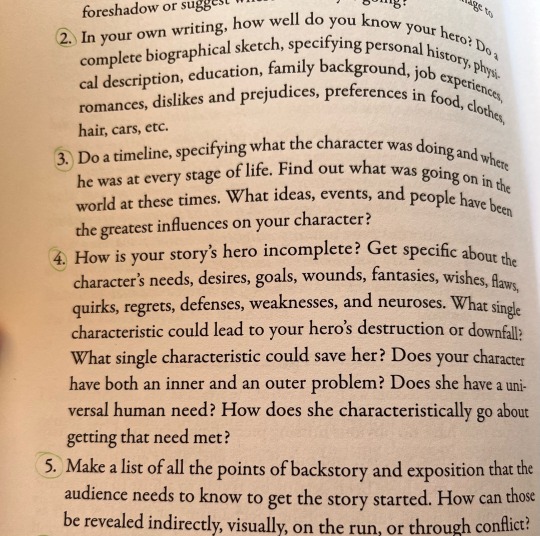
(There are questions like that at the end of each “journey stage” chapters)
#the writer’s journey#christopher vogler#hphm#alice beaumont#simon selwood#hphl#astraea morgen#my ocs
2 notes
·
View notes
Text
Knives Out
Cover your tracks, prepare your alibi, and get ready to stare into the donut hole. This is the hero’s journey of Knives Out.
Side Quests
Elixirs
Dan’s Elixir:
Whodunnit
2 oz. Blood orange soda
1.5 oz. Cointreau
0.5 oz. Fresh lemon juice
2 oz. Tonic water
Build in glass, combining all ingredients with ice and stirring gently.
Jeff’s Elixir:
Vigilance Sauvignon Blanc
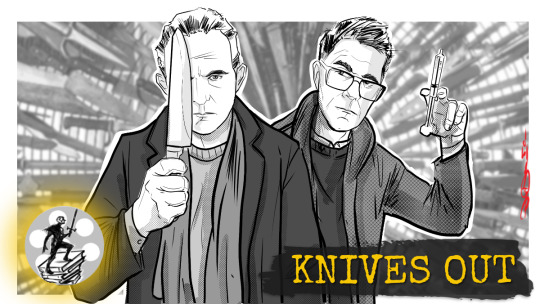
View On WordPress
#christopher vogler#film#films#hero’s journey#joseph campbell#monomyth#movies#mythology#story structure
2 notes
·
View notes
Text
The hidden shapes in stories and why drama isn't what you think it is - interview with @EHeathRobinson
This is a massive headline, I know. A massive headline for a massive and far-ranging conversation about storytelling.
My host is Heath Robinson, whose YouTube channel has seen a stellar line-up of story nerds, including Christopher Vogler, author of The Writer’s Journey, Christopher Vogler, Matt Bird, author of The Secrets of Story, John Truby, author of The Anatomy of Genres, and Vic Mignogna,…
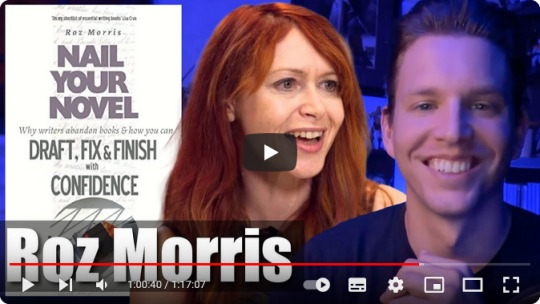
View On WordPress
#boring plots#character from plot#character or plot#Christopher Vogler#Conflict#drama#Heath Robinson#how to write a better book#how to write a better novel#how to write drama#interview#interviews#John Truby#Pixar#plot points#plot structure#plot twists#posts on audio and video#story structure#storytelling#Table Talk
0 notes
Text
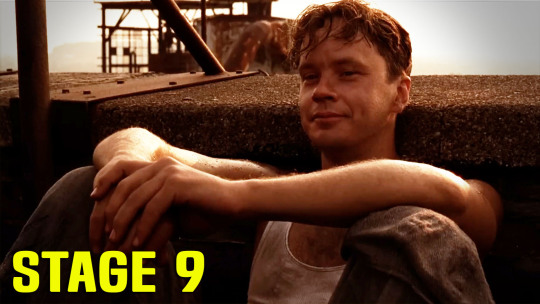
12 Stages Of The Hero's Journey (Narrated By Christopher Vogler)
Watch the video on Youtube here.
#fiction#writing#how to write#telling a story#storytelling#story#authors on tumblr#writers on tumblr#screenwriting#hero's journey#christopher vogler#writers journey#writing advice#writing tips#writing resources#writing motivation#writing help#writers life#writer stuff#writing problems#scriptwriting#novel writing#creative writing#writeblr#writerscommunity#writers of tumblr#writer things#writing community
0 notes
Photo
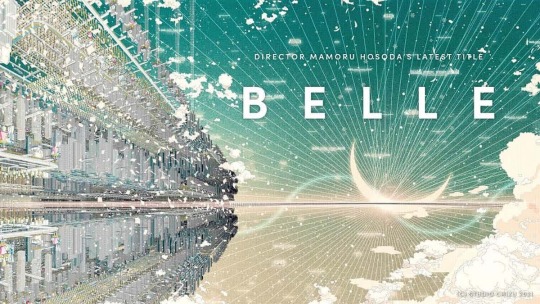
(via BELLE)
Un viaggio tra il mondo reale e quello virtuale, che porta la protagonista ad affrontare il viaggio dell'eroe. Un viaggio che ha solo due possibilità: o diventi un eroe o "muori".
#anime#belle#christopher vogler#diversamente intelligente#drama universe#diamanta#fantascienza#fantasy#film#mamoru hosoda#netflix#recensioni#ryuu to sobakasu no hime#studio chizu#viaggio dell'eroe
1 note
·
View note
Text
Structurer un roman : Le voyage du héros
Le plus gros article de mon blog, j'y détaille le voyage du héros qui est une méthode d'écriture de roman (et autres). J'y parle surtout de la méthode décrite dans le Guide du scénariste de Vogler
Le voyage du héros ou comment ce que Joseph Campbell appelait le Monomythe est devenu une méthode d’écriture.
Petit disclaimer : la méthode présentée ici n’est pas à 100% celle présenter dans le livre le héros aux 1001 visages. Comme beaucoup d’autrices et auteurs, enfin je crois, je préfère travailler sur la version donnée par Christopher Vogler dans Le guide du Scénariste. Pourquoi ces…
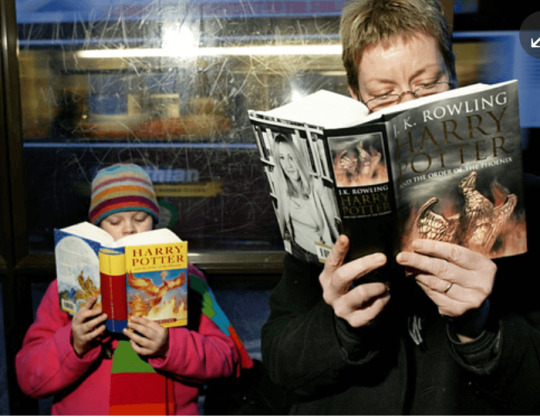
View On WordPress
#écrire#écriture#christopher vogler#joseph cambell#le guide du scénariste#le voyage du héros#lecture#livre#méthode de plan#planifier un roman#podcast#roman
0 notes
Photo
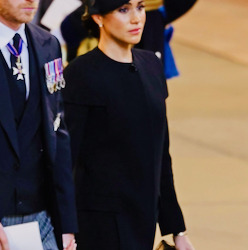

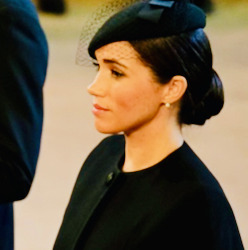

Through the Years → Meghan, Duchess of Sussex (192/∞)
14 September 2022 | Prince William, Prince of Wales, Catherine, Princess of Wales, Prince Harry, Duke of Sussex and Meghan, Duchess of Sussex pay their respects inside the Palace of Westminster during the Lying-in State of Queen Elizabeth II in London, England. Queen Elizabeth II's coffin is taken in procession on a Gun Carriage of The King's Troop Royal Horse Artillery from Buckingham Palace to Westminster Hall where she will lay in state until the early morning of her funeral. Queen Elizabeth II died at Balmoral Castle in Scotland on September 8, 2022, and is succeeded by her eldest son, King Charles III. (Photo by Christopher Furlong/Ian Vogler/Getty Images)
#Meghan#Duchess of Sussex#Britain#2022#Christopher Furlong#Ian Vogler#Getty Images#through the years: Meghan
7 notes
·
View notes
Text




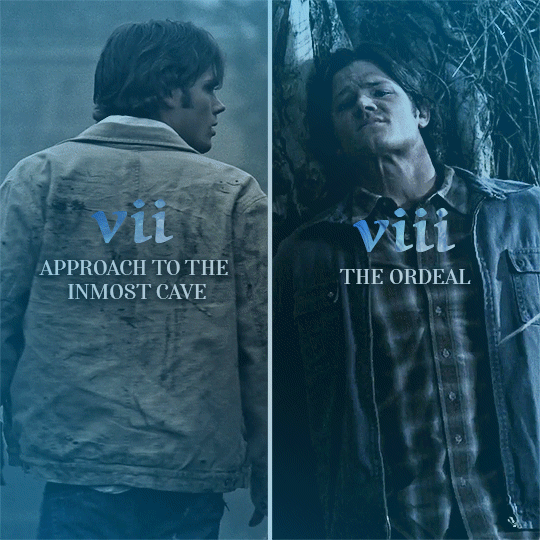
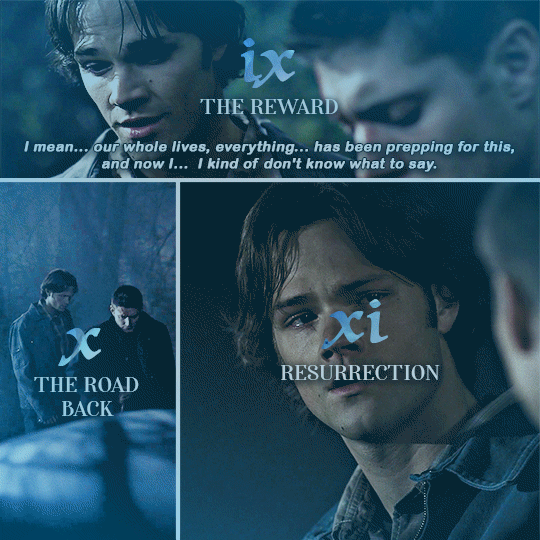

sam winchester + christopher vogler's the hero’s journey in seasons 1 & 2 [in/sp]
Sam is that very classic Joseph Campbell [hero] with the prophecy and all that. - Eric Kripke
#supernatural#spn#sam winchester#spnedit#supernaturaledit#samwinchesteredit#spnsamwinchester#*#so many links in the caption lol but further reading and inspiration if anyone is interested!
392 notes
·
View notes
Text
FANFIC WRITING RESOURCE MASTER POST

so in the spirit of wanting to see writers thrive I've decided to make a big master post of every single resource I use in order to create my works. It can be really hard to find concrete resources and it's frustrating to feel like you just don't know how to do something or how to get started but no worries hopefully you can find answers in this post ^_^

ON WRITING SMUT
› writing resources to keep on hand while you write
The Ultimate Guide to Writing Smut Fic by QuinnAnderson on AO3
The Sexy Thesaurus by Laurel Clark
Lewd Vocabulary in Erotic Fiction Survey by KJ Scott (from a survey done on r/fanfiction)
75+ Ways To Say Heart Pounded by Kathy Steinemann
Ways To Describe Breath & Breathing by Kathy Steinemann (everything on her site is super helpful tbh)
21 Other Words For Vagina by Lisette Marshall
The Gay Sex Positions Guide (be advised this is a photo guide!)
Writing Sex Scenes by Michael La Ronn (video resource)

GENERAL HELPFUL WRITING TOOLS
› things that can help when you feel stuck on certain words, want to avoid repetitive sentences, or check your spelling and grammar
Reverse Dictionary (search for words based on their definition)
Related Words (help you find words related to another word or phrase)
Describing Words (find adjectives)
Words to Use (reference that groups subject related words by parts of speech)
Wordhippo (has synonyms/antonyms/ect based on different definitions)
Netspeak (search for words you don't know yet/internet slang)
OneLook (thesaurus/dictionary)
Fighters Block (overcome writers block by setting it up as a game to achieve a certain word count)
Scribens (lesser known spelling and grammar check but does more! Helps prevent word repetition, rephrasing, vocab enhancement, + other stuff)

THE BASICS OF WRITING
› helpful resources to give you a solid foundation for your writing
7 Fundamentals of Writing by Michael Stover
Fundamentals of Writing by Jim Westergren

RECOMMENDED BOOKS
› this section is books on writing I recommend reading, you can either purchase them or if you know how to pirate you can get them that way too
On Writing: A Memoir of the Craft by Stephen King
On Writing Well by William Zinsser
The Elements of Style by William Strunk & E.B. White
Ernest Hemingway on Writing by Larry W. Phillips
The Writers Journey by Christopher Vogler
#writing resources#fanfiction resources#anyways i hope this list is helpful & that it helps u make the most toe curling fics on earth mwah#fic resources
347 notes
·
View notes
Text
okay 1 person wants the essay and that is enough for me.
so obviously all of the goes wrong productions are ensemble pieces. but i firmly believe that if you had to assign a main character to each goes wrong production, annie twilloil would be the main character of the play that goes wrong. why? because her story follows the basic outline of the hero's journey template. it's a simplified version, as this is a comedy show, and the development of characters is not a priority. but the framework is there, and that's what i'll go through with you today.
(disclaimer that this is mostly just a joke, so don't take this too seriously. i am also not a literary expert, so if anything here isn't correct, don't yell at me. feel free to explain anything to me nicely though.)
i am using christopher vogler's 12-step outline as my basis for this, as it is a more modern adaptation of the original 17-step outline, which suits this show better. not every single one of the steps is fulfilled properly, because as i said, annie's character arc isn't exactly a priority in the show, but also because this is usually an outline that portrays a fantasy hero going on a quest to achieve a huge feat and save the world. as this is quite different to anything in tptgw, it's never going to quite fit. as i said, this is all just for fun and is not meant to be perfect.
anyway, without more blabber, here is my interpretation of annie twilloil's story arc through the lens of the hero's journey.
the ordinary world
we are introduced to the hero's regular world. annie's ordinary world is the behind-the-scenes stage manager work. this is where she is comfortable, and she is not yet facing any challenges.
the call to adventure
the hero is called to action in some sort of way. this is obviously when sandra is knocked out and they need someone to fill in for florence. annie is asked to leave her state of normalcy and enter the unknown world (aka go on stage and act).
refusal of the call
the hero may refuse the call at first, which means they either need to be convinced or forced into taking action. annie, at first, is very reluctant to play florence. this means that she is thrust into action against her will.
meeting the mentor
the hero meets the figure who takes the role of the story's mentor. this stage is a little tricky, as there isn't any single character who stands out to me as annie's mentor. the mentor in this case could be all of the other members of cornley, as they are her "guides" through the unknown world. a more abstract mentor could be her script, as it acts like her lifeboat and literally guides her through the show.
crossing the first threshold
the point of no return, the hero finally leaves the ordinary world and enters the unknown world. annie is pushed onstage as florence, thus quite literally making her cross from backstage (ordinary world) to onstage (unknown world).
tests, allies and enemies
the hero faces obstacles, gains allies and faces enemies. while she doesn't really have any allies or enemies to deal with, annie certainly has to go through a lot of tests. this is all of the stuff that "goes wrong" — problems with lines, issues with the set, getting caught in a loop, all the general shenanigans we see in the show. this section is traditionally the longest in the story, which fits with this show, as the whole point is that there's lots of challenges to overcome.
approach to the inmost cave
the inmost cave represents a large challenge that has been looming on the horizon, and in this stage, the hero prepares for this. this is one of the stages that doesn't really apply to annie's arc, as unlike the classic hero, she isn't particularly on a quest to do something, and therefore isn't aware that she's about to face a challenge. if you wanted to make something into this stage, it'd probably be the intermission — she commits herself to playing florence and prepares herself for the rest of the show.
ordeal
this is where the hero faces their biggest challenge yet, which may be their greatest fear or their deadliest foe. for a while, i thought this was probably when annie gets knocked out (because that seems like a pretty big challenge and probably her lowest point) but she doesn't really overcome a challenge here (except for... regaining her consciousness?). it's not particularly something she has to face herself (the other characters are the ones who have to deal with it). instead, i've decided that the best candidate for annie's ordeal is when she drops her script and has to try to act alone. up to this point, she's been gaining confidence, but now she's faced with her worst fear — she doesn't know what to say anymore. she's left vulnerable. this is a challenge she actually has to face herself, and she struggles through without a script until finally she acquires another copy.
reward (seizing the sword)
the hero receives a reward as a result of their overcoming of the ordeal. this is another stage that isn't super clear, because in comedy shows, characters don't really get rewarded. in fact, most of the comedy in this show revolves around the characters suffering at the hands of their incompetence. so annie doesn't particularly receive any reward for facing the ordeal. however, i do think there's a slight element of this, as her efforts assure her that she can handle being an actor, and even being off-script. it renews her faith in herself — something that will assist her during the climax.
the road back
this is when the hero tries to return to the ordinary world — or in annie's case, this is where they attempt to simply finish the play. but the road back isn't necessarily easy, and there are more challenges (like how she is knocked out). this leads up to the final confrontation with the antagonist before the hero returns, and is the preparation for the final battle — the climax of the show.
resurrection
this is the final climax, with the hero's final and biggest challenge. it's the hero's final exam, where we see whether they learned anything from the ordeal. we see that the hero has changed from the beginning of the story — they complete their transformation that has been building since the very beginning. for annie, this is obviously her final fight with sandra, who is really the antagonist in annie's story. we see that her confidence has grown, and her experiences with the ordeal have given her enough faith in her own abilities to fight sandra for the role, even abandoning her script. and in the end, she triumphs — she ends up on stage with sandra tied up behind her.
return with the elixir
the hero returns to their ordinary world with some sort of prize (the elixir). despite having come to the end of their adventure, they have been fundamentally changed as a person. this is mostly unseen in tptgw, but we can assume it happens post-canon. annie returns to being a stage manager (for now. we know she becomes an actor for peter pan goes wrong, but i would assume that for the rest of the in-universe performances of murder at haversham manor, she continues being a stage manager). she returns to her "ordinary world" changed — she has grown as a person, faced dangers, and has become a "master of two realms". the "elixir" she brings with her is as metaphorical as her reward after the ordeal was, but she's gained new skills and confidence, and discovered that she has a taste for acting.
if you got down this far, i admire your patience and dedication. if you have anything you want to add, argue, or comment, feel free. once again, this is just some fun and is not meant to be taken seriously. thank you for reading!
#i'm tagging this because i didn't put this much effort into typing this up#just for no one to see it#mischief theatre#mischief comedy#cornley drama society#cornley polytechnic drama society#the goes wrong universe#the play that goes wrong#annie twilloil#can't believe i just wrote a whole essay on a silly comedy play#when i have an actual essay due tomorrow that i haven't started
75 notes
·
View notes
Text
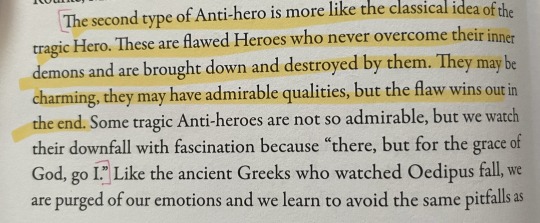
This, to me, fits Sebastian soooo much
(From the book The Writer’s Journey by Christopher Vogler)
26 notes
·
View notes
Text
The Sting
Identify your mark, stack the deck, and know your escape route. This is the hero’s journey of The Sting.
Side Quests
Elixirs
Dan’s Elixir:
Gordon’s Bourbon, Straight
Jeff’s Elixir:
Old Fasioned
2 oz. Ezra Brooks 99 Bourbon
1/4 tsp. simple syrup
Orange peel
Bourbon cherry
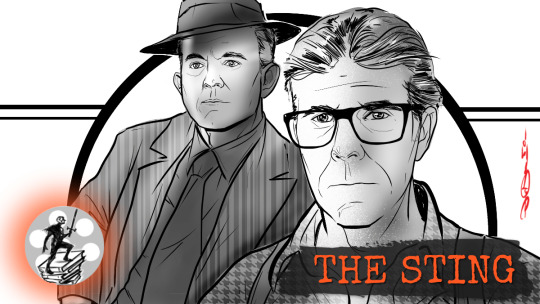
View On WordPress
#christopher vogler#film#films#hero’s journey#joseph campbell#monomyth#movies#mythology#story structure
3 notes
·
View notes
Note
hi i think i saw you say you were a screenwriter and in case thats true do you mind telling me what degree you got for that and how hard it was for you to find a job ? thank you <33
yes, I am! okay so you absolutely can get a degree in screenwriting and it's probably the most straightforward way to learn the craft and also make professional contacts, but you don't have to. I didn't. there are tons of ways to learn how to do it. save the cat! by blake snyder is the resource bible most people will recommend, and for good reason. I also like syd field's screenplay and robert mckee's story. also, though it's not strictly for screenwriting, the writer's journey by christopher vogler is a good resource on story structure for writers of any medium. also, and this one's key: read screenplays. read good ones, read bad ones, read weird ones, read famous ones. get your hands on as many screenplays as possible and read them.
'finding a job' is a funny question to me, because screenwriting is freelance work. you have to network to get gigs. it's a person-first industry, and people are going to hire their friends/people they know they can trust. getting an agent is a huge help with that. there's no one way to make a career doing it, so I'd suggest taking as many people as you can out for a coffee or something to hear how they did it and get ideas.
9 notes
·
View notes
Photo
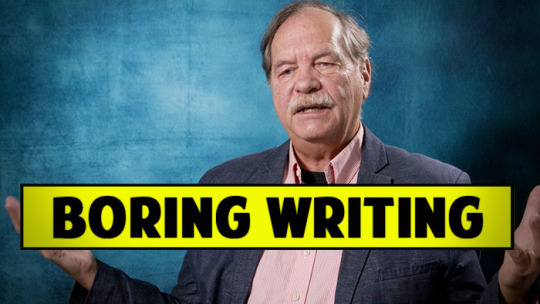
The Hero's Journey Is Not A Formula - Christopher Vogler via FilmCourage.com.
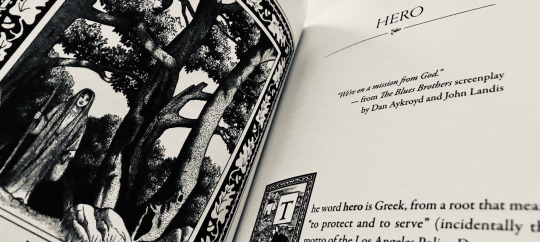
#the hero's journey#hero's journey#movies#film#writing#writers#writers on tumblr#screenwriters on tumblr#books#writing 101#screenwriting 101#Tumblr writers society#cinema#creative writing#short story#storytelling#story#christopher vogler#authors on tumblr
1 note
·
View note
Text
midnights tracklist and the hero's journey
From REDDIT Gaylor sub
With edits to new track names
I should start off by saying I'm a massive nerd and an English teacher, so my entire life is just looking for symbolism and archetypes in literally everything. It's one of my favorite topics, as well as being something I teach each year, so 'Anti-Hero' jumped out at me as a track title, and I haven't been able to shake it. I don't really ever post on Reddit (so I'm NERVOUS ABOUT THIS, Y'ALL!), and I have no idea where I'm going with this, but I just need to put it into the world and see if anyone can draw any conclusions here.
Many apologies for not knowing how to format on Reddit (I only use it on mobile) and for the length!
I think it would be genuinely weird if Taylor Swift was unfamiliar with Joseph Campbell and his literary theories and works. Campbell was a literature professor and writer with a focus on comparative mythology and folklore who is best known for his book "The Hero with a Thousand Faces" (it's a badass book). His works focus on the idea of a 'monomyth,' tracing stories across cultures and finding that the stories of heroes follow the same basic pattern (he owes a great deal of credit to Carl Jung and his works on archetypes). Once you become exposed to archetypes and the patterns of archetypes in literature/movies, it can be difficult to not see those patterns everywhere. I once had a student tell me (jokingly, thank goodness) that I had ruined movies for them because they couldn't stop seeing archetypes everywhere and questioning every choice the director made (why is that character wearing red? Rain's falling now? Must be rebirth! etc etc).
But back to my main thoughts! The traditional structure that Campbell wrote about is 17 stages; this has been adapted over the years (two other theorists each narrowed it down to 8 stages), but the version that I'm going to discuss is a more modern take on the original Monomyth theory, Christopher Vogler's 12 stages. This is the version I use with my students, and while the Campbell one is more thorough and detailed (and, honestly, more interesting), Vogler's stages are more widely known. The stages are often discussed as hours on a clock - there's a great TED-Ed video that details this. I don't know how to link things on reddit without pasting in the whole URL, so I'll add a comment with the link if anyone is interested.
Vogler wrote about these stages in a book called The Writer's Journey: Mythic Structure for Writers (1992) which started as a very short piece meant to be a practical guide to The Hero with A Thousand Faces for screenwriters. The cover of Vogler's book is a green labyrinth, which could be related to the jade green vinyl cover photo, where is there is an album sleeve in the corner with a labyrinth as its cover. It's important to note that 'hero' is just another archetype, and can be ANY type of hero (including tragic hero, Byronic hero, or an anti-hero). The Hunger Games follows this pattern, as well, for those drawing connections to HG.
The stages of the journey are as follows (broken down into 3 acts):
Act 1 - The Departure:
1. The Ordinary World: the hero is seen in their everyday life. This is where the hero is living an oblivious life, not realizing his true destiny and the adventure ahead. This is a safe place for the hero.
2. The Call to Adventure: the initiating incident of the story. This is the part when the hero is called to the adventure. This could look like a threat to the hero or her loved ones, an impending disaster that the hero learns about, or an incident that transforms the hero’s ordinary life with a sudden jolt.
3. Refusal of the Call: the hero experiences some hesitation to answer the call. Every hero has fears and doubts that hold them back, at least for a while. This is the part where the hero has doubts about her abilities and do not think they are the person to take on the quest or adventure.
4. Meeting with the Mentor: the hero gains the supplies, knowledge, and confidence needed to commence the adventure. Often there is someone older and wiser who helps the hero. Meeting the mentor helps the hero realize her dreams, and they might receive an object of great importance, some advice, training, or motivation to take on the quest or adventure.
5. Crossing the First Threshold: the hero commits wholeheartedly to the adventure and is ready to begin the journey.
Act 2 - The Initiation
6. Tests, Allies, and Enemies: the hero explores the special world, faces trial, and makes friends and enemies. This is the part where the hero is confronted with challenges by her enemies. The hero must decide who to trust in the wake of great obstacles and threats, testing her abilities to the bitter end.
7. Approach to the Innermost Cave: the hero nears the center of the story and the special world. This represents a danger, confrontation with a foe, or an actual place where the hero must enter to face the true challenge. It is the call for the final battle. While entering the cave, the hero might once again face her fears and doubts.
8. The Ordeal: the hero faces the greatest challenge yet - this is when the final battle occurs, and is the moment of truth when the hero will be reborn through some ‘death,’ even if it is metaphorical, facing all her fears, to achieve an incredible feat. This is not the LAST test, but it is the BIG ONE. BOSS LEVEL.
9. Reward: This is when the hero achieves some success, but also experiences the consequences of surviving death (again, literal OR metaphorical death). Often this goal, once met, is inadequate and leave the hero feeling somewhat unfulfilled.
Act 3 - The Return
10. The Road Back: the hero begins the journey to the ordinary world, but often it creates a false sense of peace, safety, and finality. Because the hero has seemingly gotten what they wanted all along, there is a sense of completeness, but not a deep satisfaction. This is the fake ending, where it seems over, but it's not.
11. The Resurrection: Often the hero has one last BIG moment (not always a test, ordeal, or trial but it can be) and experiences a final and ultimate encounter or moment with death. In almost every case, the hero is able to survive the encounter through their strength, courage, wit, nobility, heroism, or teamwork - the skills and companions they gained along the way.
12. Return with the Elixir: the hero returns with something to improve the ordinary world
Now I know Midnights has 13 tracks, not 12, but step 13 (in my own interpretation) is learning to live and exist in the hero's ordinary world after completing this journey. The hero returns CHANGED in some way, and must relearn how to exist in this ordinary world again. In Campbell's stages, he calls it "The Master of Both Worlds" - Mastermind? I think the track titles follow the steps of the Hero's Journey, not in a chronological fashion, but thematically, and end with the balancing of the public vs the private Taylor. I'm not sure if this is the coming out album, but I do think it'll be HELLA queer regardless, but the duality could just be 'Fame Taylor' and 'Real Taylor' like the Daylight to the Midnight, or it could be the 'Queer Taylor' and 'Het Taylor' moment that we all want.
But if it IS the coming out moment, and track 13 is her Master of Both Worlds moment, then the tracks so far would look like this:
1. Lavander Haze - status quo, public persona life, the safety she finds maybe in bearding, and others maybe find on a lavander marriage, to protect herself and her loved ones in case she is queer is a LGBTQphobic industry AND also another interpretation the simple and lavander (queer) love in hers private life and safe in living a queer life away from the public life with stalkers and fascists people.
2. Maroon - the call to adventure. If this is the verb form, as many are speculating, that initial realization of queerness and the loneliness that sometimes comes with that.
3. Anti-Hero - the refusal of the call. The denial of her queerness. She's NOT the hero that the community needs, and she didn't follow through on the coming out opportunity
4. Snow on the Beach: all the fellings attached to being queer, artists, big star, and feat Lana Del Ray, another artist who received criticism and have queer themes in her discography. She could be the Mentor - the hero gains the supplies, knowledge, and confidence needed to commence the adventure - other people in the industry helping her along, like all musicians friends and designers, photographers, journalist etc...
5. You are on your own, kid - the leaving of the mentor and embarking in a new age of trying to live her queer life maybe mainly in NY, on the 1989 era, and accepting this double life she was trying to live but also the isolation of not having a artist blueprint in how to be queer and this big of a pop star...
6. Midnight Rain - tests, allies, and enemies. There's WAY TOO MUCH that could fit here, so I'm not even going to speculate.
7. Question...? - approaching the innermost cave. If the question is "... are you ready for it?" (or "would you run away with me?" or even "can you see right through me?") and it's a QUEER question, this is a moment where she was preparing to jump into battle and needs to know if she'll have those people (or person) on the other side.
8. Vigilante Shit - the ordeal. The initial 'death' of the hero - I'm sorry, the old Taylor can't come to the phone. Why? Because she's busy doing VIGILANTE SHIT.
9. Bejeweled - the reward. Depending on how the title is interpreted, this is the reward and success she thought she wanted, but it's not what it's all cracked up to be. All the Grammys in the world won't make up for not getting to live her authentic life.
10. Labirinthy - the road block, she achieves sucesso but is trying to do this cat and mouse game where she can't talk about her experiences and maybe gets lost in that, needing to access the weight of the double life on her art
11. KARMA - resurrection
Track 12 - sweet nothing - return with the Elixir
13. Mastermind - the master of both worlds, playing both sides of her public and private personas.
Sorry this ended up being so long and poorly formatted (I'm old at not great at Reddit), but I wanted to put this out there so the smart Gaylors can work their magic and either poke enough holes in it that I stop obsessing over it OR find things that put the pieces together, which is where I'm falling short. I may have mentioned it to some of my Swiftie/Gaylor students today who thought it had possibilities so here I am!
ETA: the description of the stages are directly cobbled together from various resources - let me know if you want the links!
Edit #2: I accidentally stayed up late enough to see the newest track title, and... fucking KARMA as track 11???? The RESURRECTION?!? I have to be up in less than five hours to go teach teenagers but I have so many thoughts and they need to wait. Just wanted to add THE RESURRECTION STAGE IS KARMA. Feels appropriate.
In red are my additions after tonight's Midnights Mayhem Marathon!
#gaylor#gaylor swift#gaylorswift#taylor swift#tsmidnights#ts10#midnights theories ✨#midnights mayhem with me#reedit theories
85 notes
·
View notes
Text
In reality, [Joseph Cambpell's Monomyth] theory is widely dismissed as reductionist—far more selective than universal and unjustly valuing similarity over difference. It has been especially criticized for the way its focus on the “hero’s journey” dismisses stories like the heroine’s journey or other stories in which people do not set off to conquer and return with booty (knowledge and/or spirituality and/or riches and/or love objects). It is important to recognize Campbell’s investment in masculinity as universal.
Salesses, Matthew. Craft in the Real World (p. 18). Catapult. Kindle Edition.
This is one of those things where a dialectic is particularly useful.
I use The Hero's Journey all the time. It's massively useful as a writing tool in the modern US. A profound amount of successful stories fit the model.
AND
There's no real academic validity to Cambpell's work. He not only failed to be rigorous enough to establish his hypothesis, he academically misbehaved, choosing sources in order to validate his point at the expense of sources that he was aware of that disproved it.
Campbell invented a massively useful tool. It is a great observation of his own cultural trappings. The stories he was immersed in. It works fairly well to reproduce those kind of stories.
It is utter and complete crap for anything else.
Unfortunately it is often used as absolute gospel. Which was his and his followers doing. That's how he wanted it. Instead of as a useful tool for particular goals. I know I drive my uncle (my uncle and aunt were students of his) up the wall by talking about how useful it is to me and then slamming it as total bullshit. Because both are true.
It's actually why I never recommend The Hero With a Thousand Faces, and instead recommend The Writer's Journey by Christopher Vogler. Vogler has his own problems (including believing a lot of Cambpell's bs) but he, at least, gets that it is a tool and that's where its value lies, not as some universal truth inscribed in stone. And it's why I immediately recommend 45 Master Characters by Victoria Lynn Schmidt to read as a companion book because she did the work that Cambpell did for the "masculine" journey on the "feminine" journey (I deeply hate those terms for their radical inaccuracy) and no one, at least that I've yet read, has developed her tool further or better. In combination, they make for a much better toolset than Cambpell provides.
18 notes
·
View notes